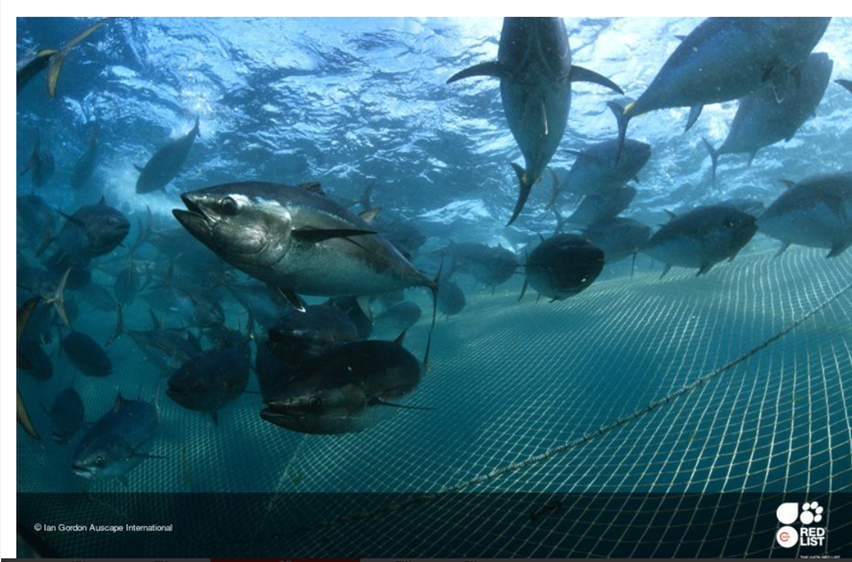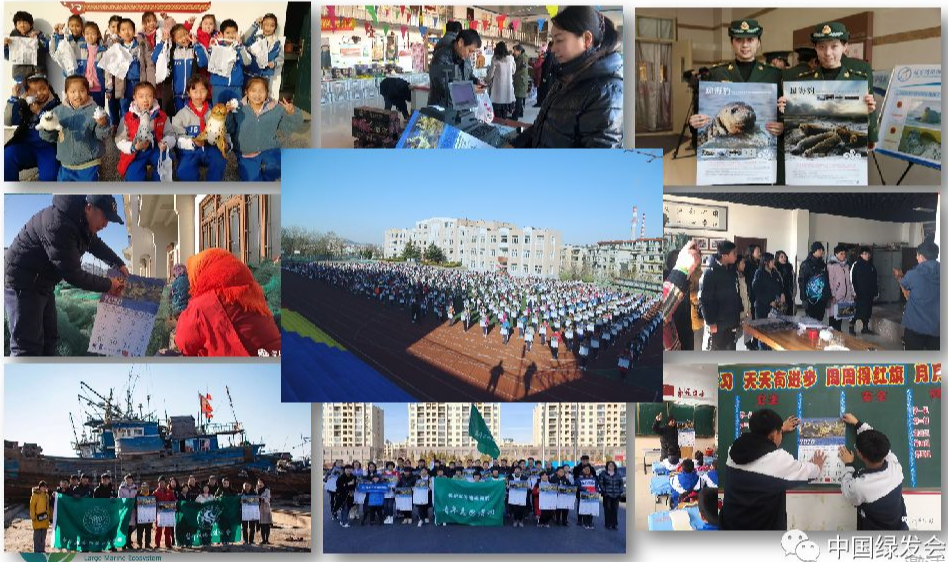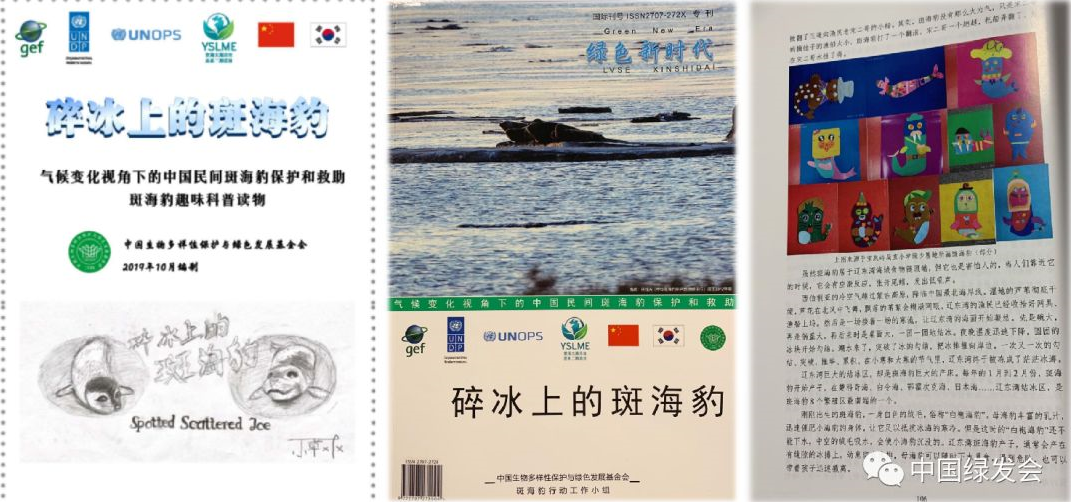1. Safeguarding the Public Interests of the Marine Environment--Environmental Public Interest Lawsuit (EPIL)
a. In June 2011, the Penglai 19-3 oil field jointly developed by ConocoPhillips and CNOOC occurred an oil spill, which caused a total of 5,500 square kilometers of marine pollution, and caused huge losses to Marine farmers and fishermen in many places.
In June 2015, China Biodiversity Conservation and Green Development Foundation (CBCGDF) filed an EPIL against Conocophillips and Cnooc at Qingdao Maritime Court, called for the restoration of the ecological environment in Bohai Bay damaged by the oil spill.
This is the first EPIL officially filed to protect the Marine environment, and it is the first Marine lawsuit filed by NGO in China.
b. CBCGDF filed an EPIL against Pingtan Longxiang Real estate Co., Ltd. for its intertidal zone reclamation, which damaged the ecological environment of Shanmen Bay.
c. To protect the coastal ecosystem, CBCGDF filed two EPILs to protect mangroves respectively in 2015 and 2019.
2. CBCGDF Proposed OECMs to Promote People to Protect Marine Environment
The protected area is not enough to protect the entire biodiversity. CBCGDF proposed another effective area-based conservation measure, named the Community Conservation Area system (CCAfa). It is aimed to establish an effective mechanism for the whole society to participate in biodiversity conservation and strengthen the protection of typical ecosystems, species, genes and landscape architectural diversity. So far, CBCGDF has set up 180 CCAfas, including Coral, Relic Gulls, Chinese White Dolphins, Waterbirds, Great Bustards, Cowfish, Harbor Seals, etc.

3. Protect Marine Biodiversity and Advocate Sustainable Consumption
a. Set up Bluefin Tuna Day
Bluefin tuna, a rare and endangered Marine species, is at the top of the Marine ecological chain and plays an important role in the health and stability of the Marine ecosystem.
To protect the Bluefin Tuna and promote the sustainable development of Marine resources, CBCGDF has set June 12th as “Bluefin Tuna Day” every year.
b. Call on e-commerce companies to remove endangered Bluefin Tuna from shelves.
c. On January 10, 2020, the review meeting of the Yellow Sea Large Marine Ecosystem Phase II project (YSLME Phase II) was held in the Institute of Geography, Chinese Academy of Sciences, Beijing, China. The project to build a network of Marine-protected areas for harbor seals in the Yellow and Bohai seas has been completed.
Under the guidance of UNDP, the GEF Small Grant Scheme, UNOPS, and other relevant organizations, the project organized nearly 20 CCAfas in China. The project mainly focused on 4 Chinese harbor seal science popularization centers, and carried out 5 key works, including compilation, distribution and publicity of professional books “Harbor Seal on Broken Ice”; clip and broadcast of harbor seal public welfare short videos; popular science training of harbor seal and other Marine knowledge; production and promotion of harbor seal publicity materials; and new media operation matrix of harbor seals.
4. Legislative advocacy
a. On December 24, 2021, the Law of the People’s Republic of China on Prevention and Control of Pollution From Environmental Noise was adopted. The law goes into effect on June 5, 2022. The new law establishes the general requirements for the prevention and control of noise pollution in the new period. The idea of promoting ecological civilization construction and sustainable development should be reflected in the purpose of the legislation.

CBCGDF has always been guided by ecological civilization to help China push forward environmental control work related to noise pollution. At the proposal meeting of the Two Sessions, CBCGDF made suggestions and suggestions on the Law on Prevention and Control of Pollution From Environmental Noise represented by Marine noise pollution.
b. Reduce marine litter at source
At the 2018 Proposal meeting of Two Sessions, CBCGDF proposed to reduce the production of plastic products at the source, and reduce Marine litter at the source, and respect consumers’ right to green consumption. For example, Under the initiative of CBCGDF, the food delivery platform has added the option of “no cutlery”, fully respecting consumers’ right to green consumption. To reduce litter at the source, CBCGDF filed the EPIL for over-packaging mooncakes.
5. International Cooperation
a. CBCGDF is an accredited member of IUCN, United Nation Global Compact and Global Genome Biodiversity Network (GGBN); a partner of the Convention on the Conservation of Migratory Species of Wild Animals (CMS); and an observer of Convention on Biological Diversity (CBD), the Convention on International Trade in Endangered Species of Wild Fauna and Flora (CITES), IPBES, the Ramsar Convention and The International Treaty on Plant Genetic Resources for Food and Agriculture (ITPGRFA). It is an official data publisher of the Global Biodiversity Information Facility (GBIF).
b. CBCGDF participated in the meeting of the Conference of the Parties (COP) to the CBD, UNFCCC, Basel, Rotterdam and Stockholm conventions, CITES, CMS, etc.
c. CBCGDF is actively participating in the Intergovernmental Conference on an international legally binding instrument under the United Nations Convention on the Law of the Sea on the conservation and sustainable use of marine biological diversity of areas beyond national jurisdiction. CBCGDF will participate in the Fourth Session of BBNJ in March.
6. Public awareness of protection
In YSLME Phase II, more than 2,900 people participated in 15 pieces of training held in 15 regions including Beijing, Tianjin and Chongqing. The accumulated reading reached 760,000; 3 million people watched public service videos. Distributed more than 2500 books and materials on “Harbour Seals on Broken Ice”. Two stuffed leopard seal toys were customized, which were distributed to front-line fishermen. It has guided the public to actively participate in the protection of harbor seals, strengthened the popular science education of harbor seals in schools, enriched the common knowledge of harbor seals among fishermen, volunteers and students, and improved the public’s awareness of wild Marine animals and Marine environment protection.

Writer: YJ
Editor: Samantha
Contact: V10@cbcgdf.org; +8617319454776

Contribution
Do you know? CBCGDF is a non-profit organization. We rely on crowd-funding and donations. You have the opportunity to help us to advance biodiversity conservation. Donate TODAY to power up the movement to make it a better world for all life.
https://www.paypal.me/CBCGDFChina
http://www.cbcgdf.org/English/ConfirmDonaTion/0.html
